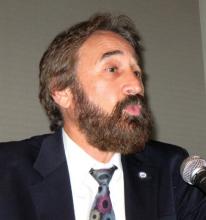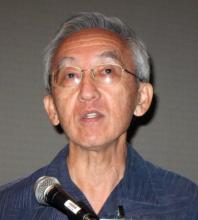The Glasgow Coma Score may not be sensitive or specific enough to detect many of the problems that sports psychiatrists see, such as early cognitive symptoms, he asserted. "We might be missing some very early clinical findings" by using this most common system for classifying TBI severity, Dr. Baron said.
In 2007, under pressure from politicians and the media, the National Football League for the first time acknowledged that concussions lead to long-term problems and put independent neurologists in charge of return-to-play decisions after TBI, Dr. Baron said. The league started a database to log every concussion for every player. There’s also a new interest in studying the long-term effects of TBI in retired athletes.
William Tsushima, Ph.D. and his son Vincent G. Tsushima, Ph.D., both neuropsychologists in Honolulu, reported that 4 million high school and college athletes have undergone computer-based neuropsychological assessments before sports participation. Each year, 300,000 athletes suffer mild TBI, including 60,000 high school athletes with cognitive and emotional symptoms of TBI. Every player in the National Hockey League now is required to undergo testing before playing.
A study by the Tsushimas in 639 high school athletes found that younger teens recover more slowly than older athletes after concussion, suggesting that more time is needed before allowing younger athletes to return to play.
They used the ImPACT neurocognitive assessment tool, which now comes in a handheld version for use on the field that includes a brief mental status evaluation, Dr. Vincent G. Tsushima said. The device’s makers are working on versions for use with younger ages (5-11 years) and in different languages, he said.
Weigh Rx Choices for Concussion in Athletes
Consider three questions before starting an athlete on a psychiatric medication: Is it safe, especially if the athlete exercises to exhaustion and sweats a lot? Will it affect performance? Is it allowed under antidoping guidelines?
Results of studies of psychiatric medications in athletes may not be generalizable, cautioned Dr. Reardon. They typically involve only one or two doses rather than long-term use.
One of the most common measures of effects on performance is grip strength. "How readily can you extrapolate that to the athlete who is an Olympic 400-meter dasher?" asked Dr. Reardon, who previously was a 400-meter runner in track and field competitions.
The selective serotonin reuptake inhibitor drugs generally are considered first-line therapy for behavioral and cognitive symptoms of traumatic brain injury (TBI) that do not start resolving within a few weeks of TBI, including anxiety, depression, irritability, poor tolerance of frustration, and even cognitive difficulties in athletes who suffered concussion.
Preliminary data suggest that fluoxetine does not affect athletic performance and has no safety concerns. One study reported that paroxetine inhibited athletic performance, but another found no effects.
Very preliminary data from one study on bupropion suggests it may be performance enhancing if used acutely in hot temperatures, but "we should take very seriously that we should avoid this medication in athletes who suffered recent head injury, given the epileptogenic potential of the drug," she said.
In athletes with TBI, preliminary data suggest avoiding anticholinergics and other anxiolytics or sedative-hypnotic drugs that may cause cognitive slowing, fatigue, or drowsiness. Beta-blockers are banned in archery and probably inhibit performance in endurance sports. Melatonin, used as a sleep aid, seems safe and does not seem to inhibit performance. Avoid benzodiazepines, especially longer-acting ones, which affect performance.
A relatively new area in the treatment of deficits in memory or attention after TBI is "cognitive enhancers, commonly stimulants. This is "a potential recipe for disaster" for athletes who exercise to exhaustion in hot climates, Dr. Reardon warned, because stimulants allow the athlete to exercise harder, to a higher core body temperature without perceiving greater effort. "There are reports of some who dropped dead," she cautioned.
Amantadine, bromocriptine, and to a lesser extent levodopa also increasingly are being used after TBI, but there is little research in athletes. Preliminary interest is growing in using cholinergic augmentation (donepezil, for instance) to treat attention or memory deficits after TBI, Dr. Reardon noted, but not yet in athletes.
Dr. Reardon, Dr. W. Tsushima, and Dr. V. Tsushima said they have no relevant conflicts of interest. Dr. Baron has received financial support from Eli Lilly.



